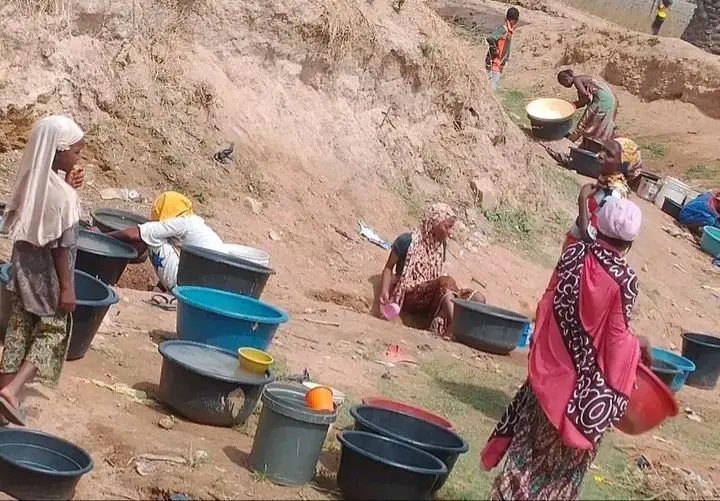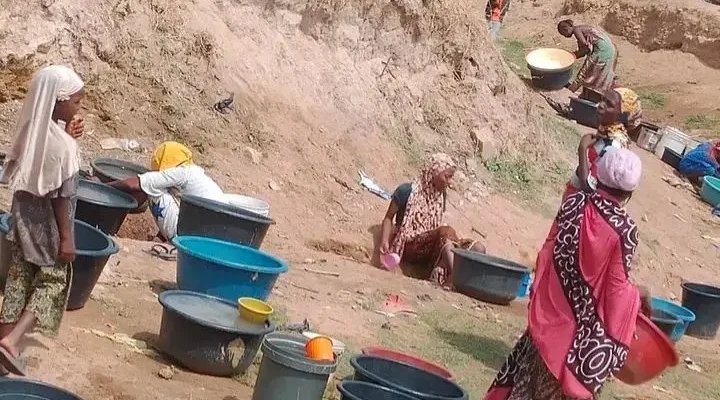
A severe water scarcity has crippled daily life in Nasarawa Eggon Local Government Area of Nasarawa State, forcing residents to rely on stagnant and unsafe water sources for their basic needs.
In the absence of functional boreholes and public water supply, many locals—especially in communities like Angwan Kuje—now fetch muddy water from shallow, open ponds often contaminated with animal waste and debris. These unsafe sources have become the only available option for drinking, cooking, bathing, and washing, raising serious public health concerns.
Adefu Ruth, a resident of Angwan Kuje, lamented the situation. “We’ve not had tap water here for over two months. We now depend on this dirty water because we have no choice.”
Another resident, Luka Akiwa, expressed his disappointment in the area’s political representatives. “We have a Senator, a Commissioner for Water Resources, and a House of Assembly member—yet, their people are fetching water from holes just a few meters from their homes.”
Jane Albert, another local, shared her distress. “This water smells and changes color every day. But what can we do? Not everyone can afford sachet water or has the means to travel long distances for clean water.”
During a visit by this reporter, residents were seen struggling to access water from a tanker reportedly donated by a well-meaning indigene of the community to temporarily ease their suffering.
Community leaders attribute the worsening situation to failed boreholes, dried wells, and the near-total collapse of the public water infrastructure.
Despite mounting pressure, the Commissioner for Water Resources and Rural Development, Muluku Aggah—an indigene of Nasarawa Eggon—has remained silent on the issue. Efforts to reach him for comment were unsuccessful, as he was said to be absent from his office when visited on Wednesday.
However, a staff member at the ministry, who pleaded anonymity, confirmed that the ministry was aware of the crisis and that plans were underway to repair some faulty boreholes. He could not, however, provide a specific timeline for when water would be restored.
As the dry season intensifies, residents fear the situation may worsen unless urgent intervention is taken.

Comments